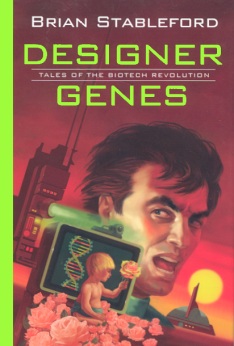| Home |
| Novels |
| Collections |
| Translations |
| Non-Fiction |
| Short Stories |
| Anthologies |

A tireless believer in the advancement of biotechnology and the wonders it can bring to humanity, Brian Stableford has used his fiction, both short and long, to explore all sides of the advantages and hazards of tinkering with ourselves, our environment, and our planet.
Eleven of his best stories in Designer Genes: Tales from the Biotech Revolution, postulating what life might be like when anything and everything is subject to the whims and desires of man; who will always want something better, bigger, larger.
Current, cutting-edge advances in technology and medicine are taken to their rigorous, logically extrapolated extreme, and seen from the views of people and organizations both for and against this kind of genetic and biological manipulation.
CONTENTS:
What Can Chloe Want?
The Invisible Worm
The Age of Innocence
Snowball in Hell
The Last Supper
The Facts of Life
Hot Blood
The House of Mourning
Another Branch of the Family Tree
The Milk of Human Kindness
The Pipes of Pan
Published by Five Star in March 2004
ISBN:1-59414-033-2
Cover design by Christopher Watt
Cover art by Charles Bernard

